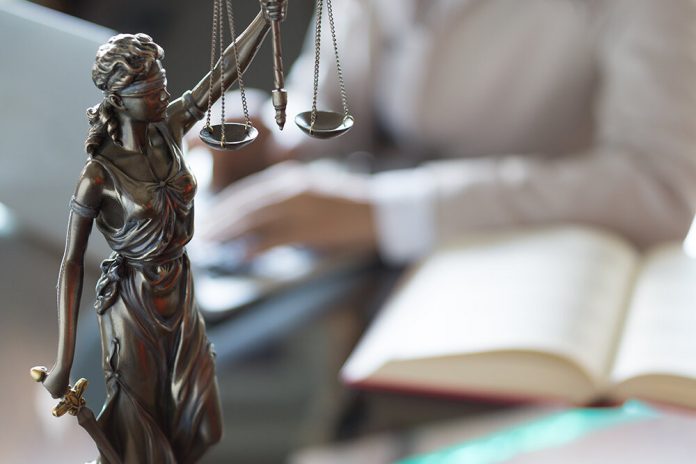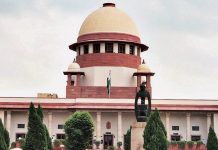This article is written by Beejal Ahuja from the New Law College, Bharati Vidyapeeth University, Pune. This article discusses the concept of free legal aid and the challenges for affording the same.
Table of Contents
Introduction
It was rightly said by Justice Blackmun that “The concept of seeking justice cannot be equated with the value of dollars. Money plays no role in seeking justice.” The road to justice has never been a cheap one. One has to pay a hefty amount at each step while seeking justice in courts. Article 14 of the Constitution of India states that every person shall be treated equally before the law, and ensures equal protection of the law, to everyone irrespective of religion, caste, race, sex, or place of birth. Also, Article 22(1) states that whoever being arrested cannot be denied the right to consult and to be defended by a legal practitioner of his/her choice, and there is a basic principle of law that should be followed, that is, Audi Alteram Partem, that no party shall be left unheard. Even after justice is a fundamental right, the poor people have to suffer a lot due to the inability to afford the expensive legal system and have to settle for the injustice many times.
Legal Aid is a torchbearer for poor people who cannot afford the court proceedings. It is free legal assistance given to poor people in judicial proceedings, administrative proceedings, quasi-judicial proceedings, or any consultation regarding all legal problems. Legal Aid as explained by Justice P.N. Bhagwati is an arrangement to have easy access to the justice delivery system for the poor and illiterate people, so that ignorance and poverty does not stop them from seeking justice. The only objective of this service is to provide equal justice to the poor and downtrodden people. This not only includes the free access to the representation of an advocate in court proceedings but also Legal Awareness, Legal Advice, Public Interest Litigation, Legal Mobilizations, Lok Adalats, law reforms, and many such services that could prevent the injustice.
Historical background
After Independence, many states introduced the concept of legal aid for the needy people. In 1958, the 14th Law Commission Report emphasized on providing equal justice and free legal aid to the poor. Kerala was the first state to introduce a policy on legal aid, Kerala Legal Aid, to the poor. Tamil Nadu and Maharashtra also introduced similar schemes to provide free legal aid to the poor and backward people. In 1971, Hon’ble Justice P.N. Bhagwati was a chairman of a committee that was formed to emphasize the role of judges in providing justice to all and working of the different committees of legal aid, that were-
(i) Taluka Legal Aid Committee
(ii) District Legal Aid Committee
(iii) State Legal Aid Committee.
In 1973, a report was published on “Processuals Justice to Poor”, by an Expert Committee on Legal Aid headed by Hon’ble Justice V.R. Krishna Iyer. The report emphasized on the need to give a statutory basis to legal aid, the need to set up legal aid clinics in law schools, emphasis on Public Interest Litigation, and other ways to make the legal aid system easily available to people. Then, in 1977, a joint report was submitted by Justice P.N. Bhagwati and Justice Krishna Iyer, named as “National Juridicare Equal Justice and Social Justice”. The report looked at the working of the legal aid programs, recognized the value and role of lawyers in seeking remedies or justice, and also proposed to establish the National Legal Service Authority (NALSA).
In 1976, keeping in mind the need for providing free legal aid, it was made a statutory right by the 42nd Constitutional Amendment by inserting Article 39A under the Directive Principles of State Policy (DPSP), on “Equal Justice and Free Legal Aid” which stated that the State must the Court has to ensure equal opportunity of justice to everyone and provide free legal aid to the ones in need so that economic or any other disability does not stop anyone from seeking Justice.
In 1980, Committee for Implementation of Legal Aid Scheme (CILAS) under the chairmanship of Hon’ble Mr Justice P.N. Bhagwati, monitored and supervised the legal aid activities going on in the country and also introduced Lok Adalats which are an effective tool to settle disputes amicably.
Role of Judiciary
Judiciary has always been a major supporter and a proponent of free legal aid in India. It is evident from the past that the Hon’ble Justice P.N. Bhagwati and Hon’ble Justice Krishna Iyer have played a very important role in the legal aid movement, and have emphasized the importance of free legal aid in India. Various judgments by the judiciary have proven effective in promoting the legal aid program. Some of them are:
Hussainara Khatoon v. Home Secretary, State of Bihar
This case exposed the poor condition of the justice delivery system in the state of Bihar. There were so many undertrials that were forced in jails and there were accused that were forcefully convicted and suffered greater punishment than they deserved. The only reason behind all these delays was the inability of the convicted person to hire an advocate to defend them. It was held by Justice P.N. Bhagwati that the right to free legal service is an essential part of ‘reasonable, fair and just” procedure for a person who is accused of any offence and this guaranteed by Article 39A and implicit in Article 21.
State of Haryana v. Darshana Devi
In this case, Hon’ble Justice Krishna Iyer held that no poor should be deprived of the justice market just because of the court-fee and refusal to apply the exemption provisions of Order XXXIII, Civil Procedure Code, and extended its provisions to Accident Claims Tribunals.
Khatri v. State of Bihar
In this case, Hon’ble Justice P.N. Bhagwati made it mandatory for the Session Judges to inform the accused of their rights to free legal aid and if any such person is unable to hire an advocate to defend due to poverty or indigence.
Sheela Barse v. Union of India
In this case, it was held by the Hon’ble Court that it is a person’s fundamental right to have a speedy trial implicit in Article 21 of the Indian Constitution.
Suk Das v. Union Territory of Arunachal Pradesh
This was one of the landmark judgments given by Justice P.N. Bhagwati. He said that India has a large number of illiterate people due to which they are not aware of their rights. Hence, it is essential to promote legal literacy and legal awareness among the people and it is an important component of legal aid as well.
Other statutes
Section 304 of the Code of Criminal Procedure, 1973
This section states that when in a trial before the Court of Session, the accused is not able to engage a pleader or advocate to defend and if the Court feels that the accused is not in a condition to engage a pleader, then it is the duty of the Court to assign an advocate or a pleader for the defence of accused and the expenses will be borne out by the State.
Rule 9 A of the Civil Procedure Code, 1908
This rule of the Order XXXIII of the CPC states that the court has the power to assign a pleader to an indigent person and exempt such person from paying the court fee as well.
Legal Services Authorities Act, 1987
This Act was a new part of the legal aid movement in India. It was enforced in 1995 after the final amendments were made to the Act. Justice R.N. Mishra played a very important role in enforcing this Act. Then in 1988, Justice A.S Anand became executive chairman of the National Legal Services Authority.
The Act had 2 objectives: (i.) to provide free legal services to the poor and weaker sections of the society, to ensure that no citizen is deprived of justice due to any economic and other disability reason, and, (ii.) to make sure that there is equal delivery of justice by organising Lok Adalats.
Section 12 of this Act lays down a category of the people who are entitled to free legal aid under this act. This Act also mentioned the institutional framework on national, state, district and taluka level, that is National Legal Services Authority, State Legal Services Authority, District Legal Services Authority, and Taluka Legal Services Authority.
National Legal Services Authority (NALSA)
NALSA is an apex body which consists of Chief Justice of India as the Patron-in-Chief and a retired Judge of Supreme Court as the Executive Chairman, who is nominated by the President. NALSA formulates policies and principles as well as frames effective economical schemes to make legal services under the act easily available. It also organises legal aid camps, encourages people to settle disputes in Lok Adalat, undertake and promote research in legal services, and also conducts periodic evaluation of legal aid programs. It promotes legal literacy and sets up legal aid clinics in various law colleges and universities and also promotes the training of paralegals. Also, NALSA supervises the activities of State Legal Service Authorities and also encourages non-governmental organisations to implement legal aid schemes.
State Legal Services Authorities
The Legal Services Authority Act makes it mandatory for each state government to have a State Legal Services Authority which consists of Chief Justice of High Court as Patron-in-Chief and a serving or a retired judge of the High Court as the executive chairman, who is nominated by the Governor of the State. The State Legal Services Authority implements the policies, rules, and strategies laid down by NALSA. This authority is the apex body that supervises the activities of the legal services taking place in the state. It also conducts Lok Adalats and various legal aid programmes.
District Legal Services Authorities
The Legal Services Act makes it mandatory for each state to constitute a District Legal Services Authority in each district in the respective state which will consist of the District Judge as a chairman. This authority performs the functions and rules laid down by the State Legal Services Authority. And it also supervises the acts of the Taluka Legal Services Committee and other legal services taking around in the District and organises Lok Adalats.
Taluk Legal Services Committee
A Taluk Legal Services Committee is constituted by the State Legal Services Authority which consists of the senior-most Judicial Officer as an ex-officio Chairman. It supervises and coordinates the activities of the legal services taking place in the Taluk and also organises Lok Adalat.
Section 3A of the Legal Services Authority Act, states about the establishment of the Supreme Court Legal Services Committee, to provide legal aid, assistance and justice to the poor and weaker sections of the society. This committee also organises Lok Adalats in the Supreme Court and also a Supreme Court Mediation Centre also functions under the committee.
Also, Section 8A states the setting up of the High Court Legal Services Authority by the State Legal Services Authority.
Lok Adalats
Lok Adalats are an alternative means of dispute resolution. The main aim of Lok Adalats is to decrease the workload of the courts and also to ensure inexpensive speedy disposal of cases. Chapter VI of the Legal Services Authority Act, 1987, states about the provisions related to the powers of Lok Adalats. There are many benefits of Lok Adalats such as there is no court fee required, it is a very amicable way of resolving disputes, speedy disposal of cases, and the parties are free to compromise or settle accordingly.
Issues and challenges
Even after so much of statutory provisions, committees and authorities, there is still a vacuum which needs to be filled. Even today, many people settle for injustice because they cannot afford an advocate to defend them. There are many reasons as to why there are so many pending cases in courts, there are many people who are innocent but convicted and are not able to defend themselves. There are many challenges and issues which come in the way of the implementation of legal aid services.
Lack of public legal education and legal awareness
These legal aid services are for the poor and illiterate people, and the major issue is that they are not educated. They do not have a legal education, that is, they are not aware of their basic rights and legal rights. People are not much aware of the legal aid services which they can avail. Hence, the legal aid movement has not achieved the goal, as the people are not much familiar with Lok Adalats, Legal Aid, etc.
Lack of support by the advocates, lawyers, etc.
These days all the lawyers and advocates want the proper fee for their services, and most of them are not interested in participating in such social services. There are very few counsels who contribute these services but the lack of good quality legal representation hinders the delivery of justice.
Lack of powers to Lok Adalats
Lok Adalats have limited powers as compared to civil courts. Firstly, the lack of proper procedures. Then in this, they cannot compel the parties to appear for the proceedings. Many times one of the parties does not appear for the hearing and then there is a delay in the disposal here as well.
Underutilization of para-legal volunteers
The basic role of these para-legal volunteers is to promote legal aid camps, schemes and to reach to the poor and weaker sections of the society. But there is a lack of proper training, monitoring, verification, of these para legal volunteers. And these volunteers are also very less in number as compared to the whole population.
Solutions and suggestions
The goal of legal aid would be achieved when all the needy and poor people are aware and are getting benefits from it, as it is their fundamental right. So, there are some improvements to be made to fill those lacunas in the legal aid system.
Role of NGOs
Involving and increasing the role of non-governmental organisations to create awareness amongst the people about their rights and effective justice delivery.
Legal aid programmes and legal awareness
There should be an organisation of legal aid camps and Lok Adalats at a mass level to spread awareness about the rights of the people and awareness about the free legal aid programmes for the needy ones. There should be the establishment of the entitlement centres at various backward areas to make them aware of the rights, laws and encourage them to opt for free legal services by solving disputes through Alternative Dispute Arbitration, Lok Adalats, etc.
Legal Literacy Mission
Other developed countries have missions of 2 years or 5 year plans to inform people about the laws and rights. India can also introduce a 5-year plan to educate people about their rights and laws.
Better remuneration to the lawyers
Nowadays, a good representation for lawyers is difficult to find because they are not interested in giving free legal services, and expect certain fees for the services. So, there should be an increase in remuneration paid to the lawyers by the courts or government, appearing or defending the accused for free.
Feedback approach
The monitoring of the work of the counsels should be evaluated through the feedback approach,that is, by asking the people about the feedback of the work of the counsel and then there should be proper progress reports of every advocate. This all could be done by setting up a proper monitoring committee.
Conclusion
It was beautifully written by Reginald Heber Smith in his book ‘Justice and the Poor’ that “Without equal access to the law, the system not only robs the poor of their only protection, but it places in the bands of their oppressors the most powerful and ruthless weapon ever invented.”
To have a successful legal aid movement in India, the government needs to take appropriate steps by spreading awareness and educating the people about their basic fundamental rights. The only objective or aim of the government should be to provide ‘equal justice to all’. The Legal Services Authority Act needs proper implementation, by solving the major problem or issue of lack of awareness and legal education among the people. If people are educated and aware of the rights there will be proper utilisation of free legal aid services, etc. Due to all this, it leads to the exploitation of rights and deprivation of rights by the needy ones. There should be proper management and monitoring of the legal aid services.
References
- https://www.academia.edu/36325912/Legal_Aid_and_Awareness_in_India_Issues_and_Challenges?auto=download
- http://www.legalserviceindia.com/legal/article-82-legal-aid-and-awareness-in-india-issues-and-challenges.html
 Serato DJ Crack 2025Serato DJ PRO Crack
Serato DJ Crack 2025Serato DJ PRO Crack











 Allow notifications
Allow notifications


